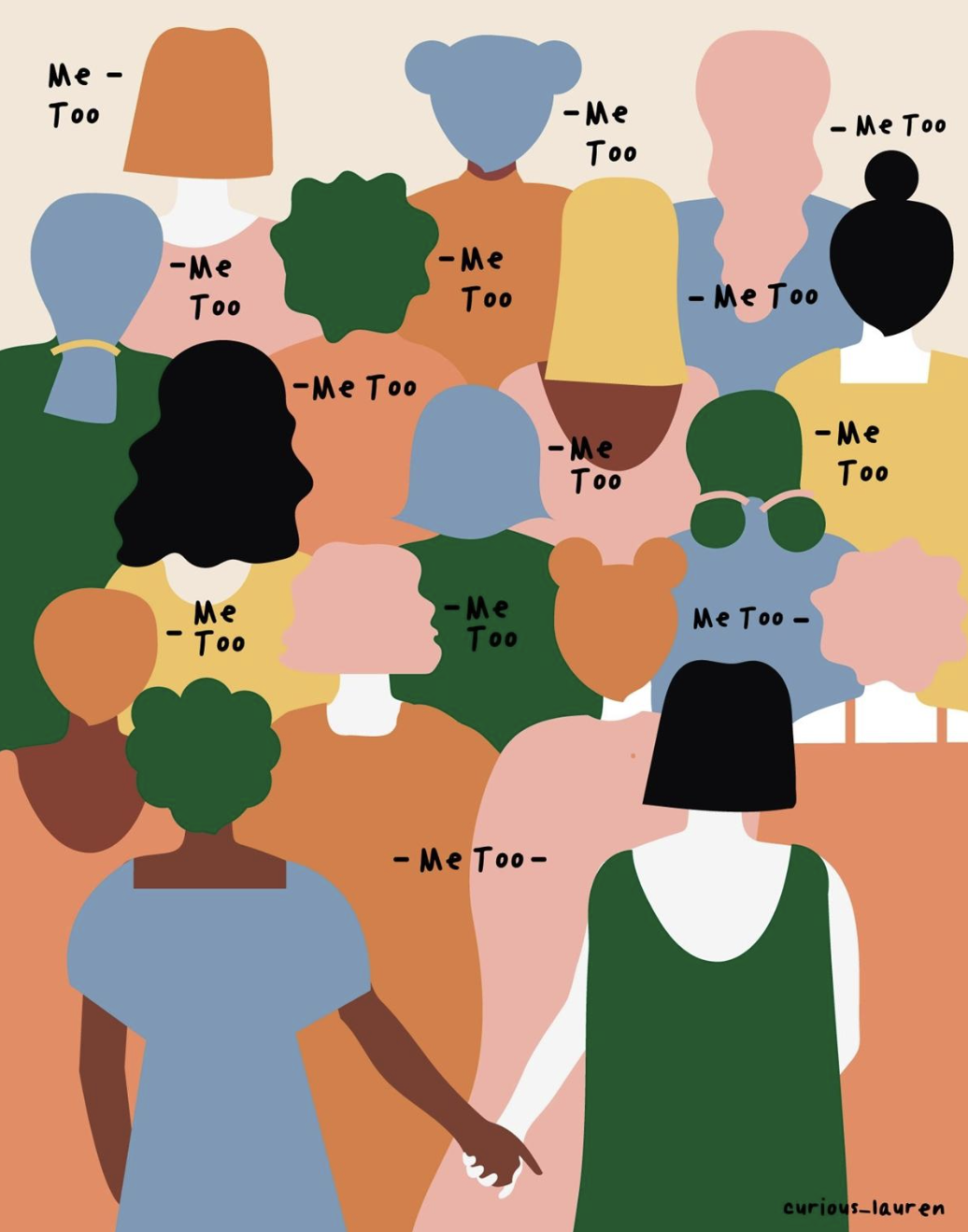A fundamental human right is to be able to live free from violence. However, gender-based and sexual violence still occurs everywhere. Equal rights and human rights have slowly evolved, advanced, and gained more recognition. In the process, we gained the MeToo movement. Years after allegations of Harvey Weinstein’s decades of sexual abuse surfaced, the MeToo movement has continued to spread throughout the world as women come forward to accuse powerful men of harassment and misconduct, revealing the prevalence and immensity of the issues pertaining to sexual harassment and assault. As a result, meaningful progress has been made in both policy and action.
“ ‘Me too’ was just two words; it’s two magic words that galvanized the world.”- Tana Burke
Tarana Burke, a social activist and champion for women in america, first coined the phrase “me too” in 2006 on the social networking site Myspace to draw attention to the prevalence of sexual harassment. Burke asserts that by demonstrating the prevalence of sexual harassment and reassuring survivors that they aren’t alone and are supported, the Me Too movement promotes empowerment through empathy.
The MeToo movement changed the worlds view of sexual harrassment and assault and brought light to the prevalant issues bringing about reforms to aid in improving the standard of conduct worldwide.
As the #MeToo movement gained popularity, legislation banning the use of nondisclosure agreements in cases of sexual misconduct were approved in a number of states. The agreements in cases of sexual assault, harassment, or sexism were outlawed in California in September 2018. The laws were adopted in both New York and New Jersey. The federal BE HEARD Act, which was sponsored in 2019 by Sen. Patty Murray (D-WA), Rep. Katherine Clark (D-MA), Rep. Ayanna Pressley (D-MA), and others, outlaws the same kinds of nondisclosure agreements.
2018 saw the addition of independent contractors to New York’s sexual harassment law, while 2019 saw improvements to domestic workers’ rights. In 2018, California’s statute was expanded to provide rights for those who are subjected to harassment in a wider range of business transactions, most notably those with producers.
Meanwhile, thousands of farm and domestic workers protested in Washington last year to urge Congress to include them in the harassment protections. This is what the BE HEARD Act would do, protecting domestic workers, independent contractors, and other groups.
In addition, to aid survivors of sexual assault, particularly those who work in low-paying professions, the Time’s Up Legal Defense Fund was established by a group of Hollywood women striving to end harassment. According to some data, since the fund’s start in January 2018, it has raised more than $24 million and linked 3,677 people with lawyers to pursue potential legal action.
Furthermore, ending the tipped minimum wage has been a point of contention for restaurant workers for a long time. The campaign has gained traction with the rise of #MeToo, with seven states already adopting similar legislation. Massachusetts and cities like Chicago have reportedly proposed legislation that would force tipped employees to receive the same minimum wage as regular employees.
The process for congressional staff to report harassment or assault was also a subject of legislation that Congress passed in response to concerns expressed by activists. The statute did away with a three-month waiting period that was necessary for people to come forward and report misbehavior, during which time the survivor had to go through counseling and mediation before initiating a lawsuit. Additionally, it forbade lawmakers from using public funds to pay for harassment settlements; a report from last year indicated that nearly $300,000 in public monies had been used for that purpose since 2003.
The #MeToo era has also seen an increase in the amount of money awarded in sexual misconduct lawsuits overall. According to MarketWatch, the Equal Employment Opportunity Commission filed 41 sexual harassment claims in 2018, a 50 percent increase from the previous year. In 2018, up 47% over 2017, the EEOC obtained $70 million from businesses on behalf of harassment victims.
Advocacy through the MeToo movement against sexual and gender-based violence in the US has had a transformative impact, igniting global mass movements, inspiring creative community-appropriate advocacy, and influencing national law and international policy. Since becoming a global movement, #MeToo has spawned numerous new or related hashtags in other languages. Countries all across the world have been affected by it, and they have also been altered by it. The fight against gender-based violence and for women’s rights has continued in the middle of the coronavirus pandemic. In certain circumstances, the urgency has even increased online.
Bibliography
- https://hbr.org/2021/05/measuring-the-impact-of-metoo-on-gender-equity-in-hollywood
- https://www.sciencedirect.com/science/article/pii/S0191886920303925
- https://www.ncbi.nlm.nih.gov/pmc/articles/PMC5976010/
- https://www.washingtonpost.com/opinions/2020/05/08/metoo-around-the-world/
- https://www.vox.com/identities/2019/10/4/20852639/me-too-movement-sexual-harassment-law-2019
- https://online.maryville.edu/blog/understanding-the-me-too-movement-a-sexual-harassment-awareness-guide/
- https://www.verywellmind.com/what-is-the-metoo-movement-4774817
- https://www.washingtonpost.com/opinions/2020/05/08/metoo-around-the-world/
